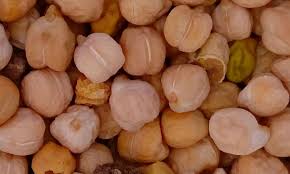Current Affairs
Chickpeas (Humus): Popular Sudanese Food
24 February, 2019
KHARTOUM (Sudanow) – Chickpea (locally named ‘kabkabi’) is one of the Sudan’s most important winter cereal crops of high nutritional value, and is available at reasonable market prices. Therefore, it is being favored as popular food by various Sudanese communities.
Chickpea was introduced on productive scale as cash crop at the Jezira scheme in the 1990s. Ever since, chickpea cultivation area kept increasing gradually year after year. Production volume for the first year was 4 to 5 sacks per acre, which was considered as promising for a first-year production volume.
With the introduction of modern cultivation technologies and reform methods chickpea production volume hiked up to exceed 12 sacks per acre for chickpea varieties such as borgaig and hawata types, which were developed by Sudan’s agricultural research board four years ago. This high increase in production volume bears significant indication that Sudan will soon join chickpea exporters to international markets.
It is worth mentioning that chickpea is internationally classified as a food-security crop. It also plays vital role in crop rotation as it conserves nitrogen content in the soil. Furthermore, Chickpea crop comes at low cost as it does not require large quantities of urea manure, thereby minimizing farmer’s expenses.
As to nutritional and medicinal value of chickpeas, Sudanow talked to Dr. Abdelmajeed Abdelrahim, alternative medicine specialist at Africa University research center in Sudan, who confirms that chickpea (Kabkabi) is being prepared and consumed as popular food in Sudan. It is commonly soaked for three to four hours and consequently cooked on subtle fire. It is usually consumed with little salt and green fennel powder added, which gives it a delicious favor.
Dr. Abdelmajeed highlighted the fact that chickpea is very rich in protein, and therefore is considered an essential dish on Ramadan Iftar (break of fast) tray all over Sudan.
Chickpeas are also used to prepare falafel, where it is soaked for some time until it is soft and then grinded with onion, garlic, salt and other spices into a supple paste. This paste is then made into different ring or finger shapes and fried in oil to a brownish color to be consumed separately, mixed with cooked beans, or served as delicious fast-food falafel sandwiches to students and travelers.
However, Dr. Abdelmajeed cautioned against repeat use of frying oil for falafel cooking.
Chickpeas also function as essential component of certain Sudanese sweets such as Sudanese favorite Maulid (Prophet Mohamed birth day celebrations) sweets.
Scientifically speaking, Chickpea is well known for its rich content of protein, carbohydrate, fat, cellulose and amino acids that are not automatically produced by human body. Chickpea also contains organic acids, vitamins, phosphorous salts, calcium and iron.
Chickpea has medicinal value as well, since it helps the healing of wounds and stomach ulcers. It is also used as diuretic treatment, and as tranquilizer for ureter, kidney and bladder contractions. Soaked chickpeas water is further used as treatment for liver, ulcer and itching.
Chickpea is normally recommended for breast-feeding women as it helps increasing the quantity of breast milk.
Being a cash crop, chickpea is vitally essential for Sudanese economy. A Sudanese exporter told Sudanow that Sudan’s exports of chickpea find good market in the Gulf countries and other African and Arab countries, since Sudan’s chickpea, though small in size, is well known for its high quality.
Some research is now under way to develop genetically improved types of chickpea for large scale production.
The River Nile state, namely Berber and Abu-Hamad districts, as well as the Jezira region are famous cultivation sites of chickpea in Sudan.
E N D
IN/AS
Photo of the Week
Everybody alive today came from one African country (The Independent) Ariana Baio Khartoum, Jan.1 (Sudanow)-It is well known that all humans alive today can be traced back to a common ancestor but a study may have found where that ancestor originates. Researchers at the University of Oxford’s Big Data Institute mapped the entirety of genetic relationships among humans t...
MoreNew media
The Poll
Archives
-
01 January, 2023
Phone battery killed nine persons, injured twelve
Zalingei, Jan.1 (Sudanow) - A dispute over a phone battery, in Marin Market, Central Darfur, led to the killing of nine persons and injuring of another twelve. The Director of Central Darfur Police, Salah Omar Al-Tayeb told SUNA last Thursday that main reasons behind the events in Zalingei began with a dispute over a phone battery, where one of the citizens stabbed to death. The police official added that the police forces moved to th...
Sudanow is the longest serving English speaking magazine in the Sudan. It is chartarized by its high quality professional journalism, focusing on political, social, economic, cultural and sport developments in the Sudan. Sudanow provides in depth analysis of these developments by academia, highly ...
MoreRecent tweets
Tweets by Suda_nowFOLLOW Us On Facebook
Contact Us

Address: Sudan News Agency (SUNA) Building, Jamhoria Street, Khartoum - Sudan
Mobile:+249 909220011 / +249 912307547







